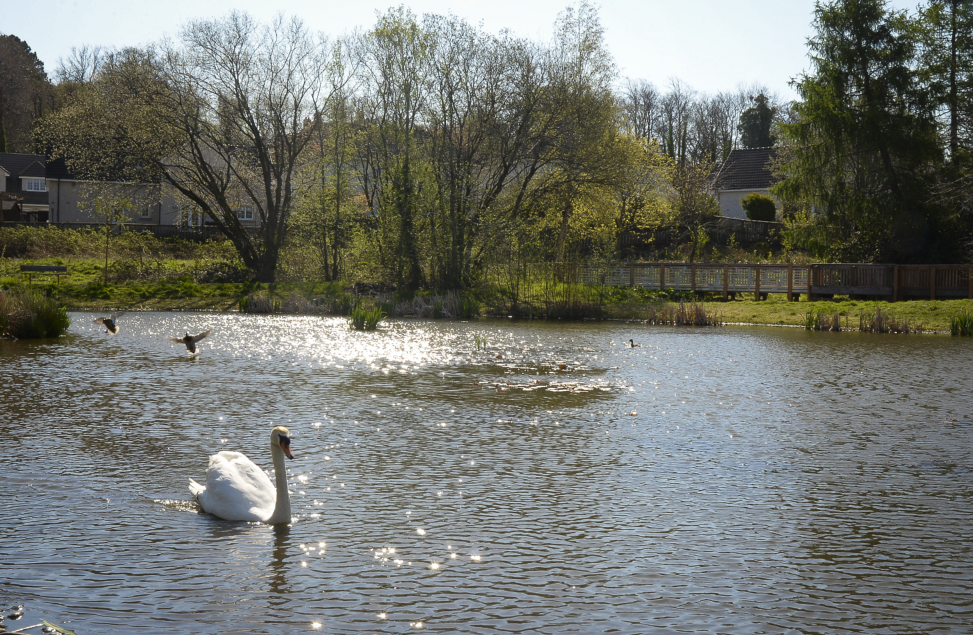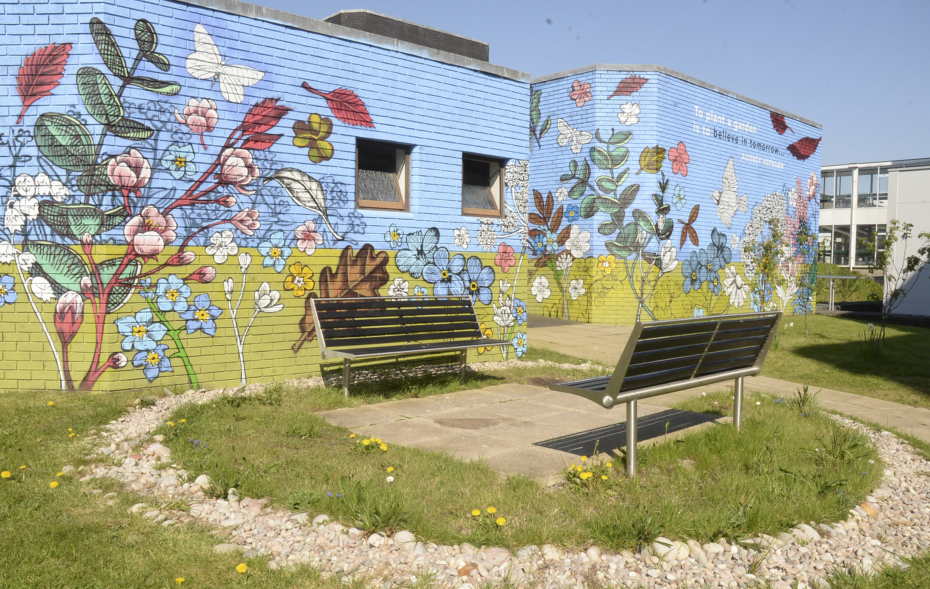
A new Sustainability Strategy has been endorsed by NHS Greater Glasgow and Clyde as it continues its efforts to tackle the climate emergency and works towards its net zero goals.
The Strategy, which was formally approved by members of the NHSGGC Board at a meeting on Tuesday 29th August, has been created in response to the Scottish Government launching “A Policy for NHS Scotland on the Climate Emergency and Sustainable Development (DL 38)”.
It has been developed to encompass NHSGGC’s medium term sustainability objectives for the period 2023-2028, and sets out a pathway towards net zero heat Greenhouse Gas (GHG) emissions by 2038 and an overall position of net zero GHG emissions by 2040.
The strategy, which will be reviewed every five years so that it can evolve to reflect our progress and changing national and international priorities, sets out a range of objectives covering all areas of national policy requirements, with a particular focus on five key areas – Energy, Waste Management, Transport Fleet Energy and Travel, Green Theatres Project, and Environmental Management – the delivery of which is crucial to NHS GGC’s medium to long term corporate objectives:
- Better care: Delivering Sustainable Care to patients by utilising new technologies and processes that reduce NHSGGC’s footprint improving patient outcomes and staff experience.
- Better health: Working with communities and stakeholders in its capacity as an anchor organisation in the region to effect positive societal change through education and economic activity to improve health outcomes.
- Better value: This transformational change is part of NHSGGC’s wider approach to financial sustainability of the organisation. Achieving financial sustainability in a balanced, equitable way is crucial to the board’s approach.
- Better workplace: Improving the workplace of staff through not only enhancing the greenspace and biodiversity of the NHSGGC estate but ensuring staff are empowered and enabled in making sustainable changes.
After presenting the strategy to Board members, Professor Tom Steele, Director of Estates and Facilities at NHS Greater Glasgow and Clyde, said: “The overarching aim of all that NHSGGC does is to provide high-quality care to patients in NHS Greater Glasgow and Clyde and across Scotland, and to provide safe, welcoming and supportive places for patients and their families, visitors and staff. This Sustainability Strategy sets out a clear pathway that will allow us to achieve that aim in a sustainable way that meets climate targets and helps drive us towards our net zero goals.”

As well as helping NHSGGC to support staff in adopting the latest advancements in safe, sustainable patient care, the vision of NHSGGC is tot make its buildings and wider services as efficient and sustainable as possible. It also plans to develop safe active travel routes connected to low-carbon transport links throughout Greater Glasgow and Clyde and the rest of the country. One of the main areas of focus will be the continuing development of NHSGGC’s outdoor estate to provide safe, attractive, green spaces for relaxation, exercise and positive mental and physical wellbeing.
Prof Steele continued: “We wish to foster an environment for patients, staff and visitors to lead healthy, active lives, with access to the tools and resources they need to continue to provide and access high-quality care. Our vision is for an equal, prosperous and healthy city region, with NHSGGC serving our communities with a resilient health service which is socially, economically and environmentally sustainable. I wish to encourage and support every member of staff to play their part in supporting sustainability actions. Everyone can make a difference, no matter how big or small, to ensure this strategy is delivered.”
Martin Johnston, Head of Sustainability at NHS Greater Glasgow and Clyde, said: “Sustainability is already central to a huge amount of work we do here at NHSGGC, and we have already made significant strides towards our net zero targets and wider environmental goals. But given the scale of the climate emergency, we are aware that there is much still to do, and this strategy will deliver a highly structured governance and work programme of improvement and change that is ambitious yet achievable.”
For more on the NHSGGC Sustainability Strategy, go to NHSGGC Board Paper – 23/63 – Sustainability Strategy – NHSGGC

